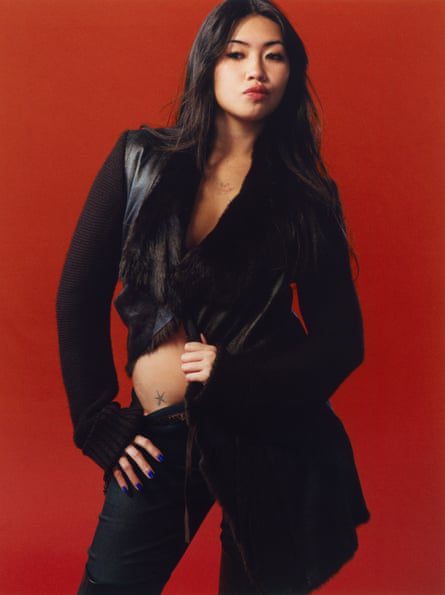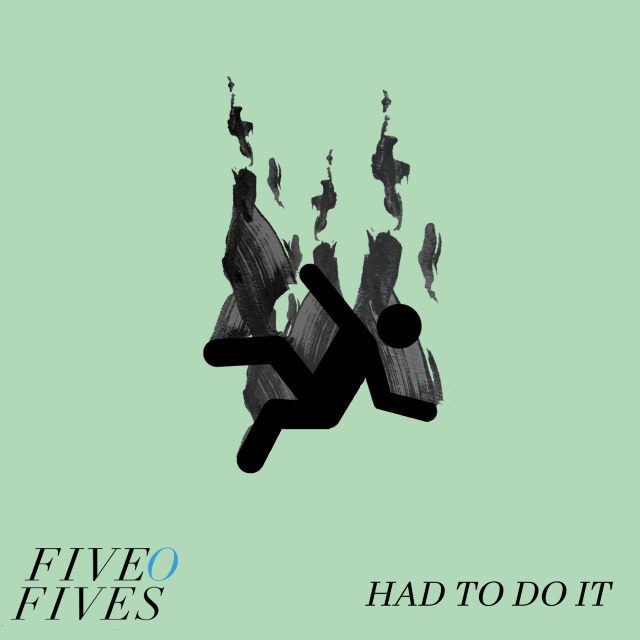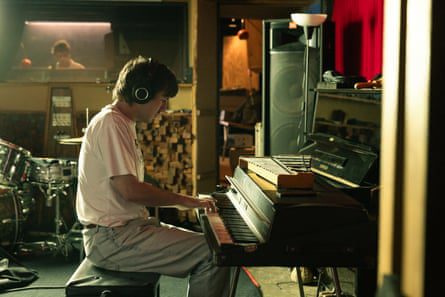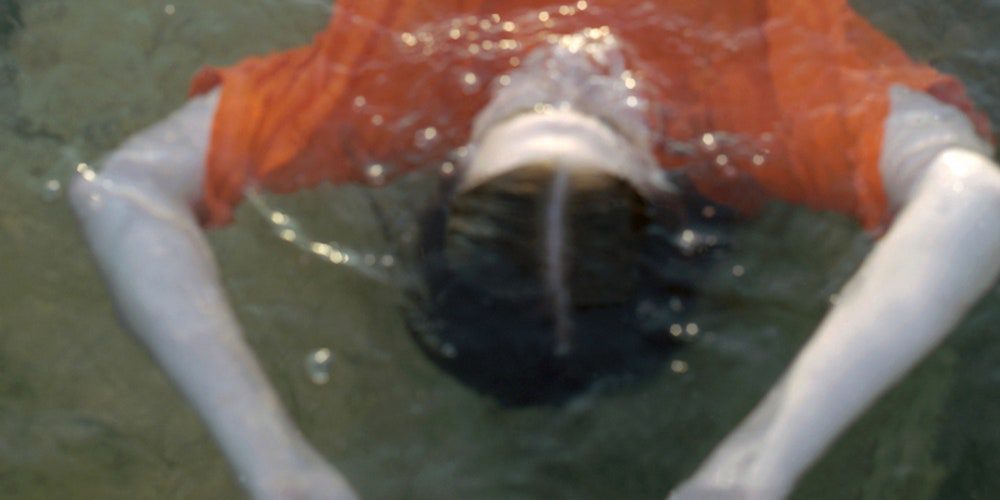
Beabadoobee: ‘I don’t have time for death threats. I’ve got a mortgage to pay’
About a year ago, Beatrice Laus, AKA Beabadoobee, started taking ballet lessons. The acclaimed, perpetually TikTok-viral indie rock musician had been touring hard in 2022, and began to feel her body breaking down. Like most early-20s musicians – or twentysomethings in general – she was, at that time, “very mentally and physically unfit, and doing a lot of bad things to my body”. Eventually, she realised she needed to get herself in shape. “I’m a very weak human being – my immune system is very weak, so I just had to build that up,” she recalls, speaking from her west London bedroom. As for why she picked ballet, specifically? “I thought the outfits were cute,” she says, with a self-aware sheepishness. “Like, I’m trying to be real!”
Self-improvement has been on the mind a lot for Laus over the past year. Her third album, This Is How Tomorrow Moves, due for release this summer, is a huge leap forward, finding her dealing with “the confusing world of becoming a woman and becoming an adult” with wit, honesty and grace. Co-produced by her longtime collaborator Jacob Bugden and pop music sage Rick Rubin at his Malibu studio Shangri-La, it’s a record that sees Laus trying to convey “a sense of confidence that I finally accepted within myself”.
She says that while her previous albums, 2020’s Fake It Flowers and 2022’s Beatopia saw her “blaming everyone around me for the way I am today”, This Is How Tomorrow Moves sees her “acknowledging my own fault in it”. Which is not to say she’s suddenly become totally humourless. “I’m not gonna hide myself just because I made an album with Rick Rubin, and I’m just like, super super serious,” she says, putting on an arch voice. “Like, I wrote an album about entering womanhood, but I’m still like, a crazy bitch – I’m still a crazy girl!”
Born in the Philippines and raised in London, Laus first broke through in 2017, when she was 17 years old, after a pair of songs she uploaded received attention on YouTube. Shortly after, she signed to Dirty Hit – the London label co-founded by the 1975 manager Jamie Oborne – and released a series of increasingly successful EPs. In 2019, her track Coffee was sampled by rapper Powfu on his song Death Bed (Coffee for Your Head); Laus, already a rapidly rising star, was sent stratospheric.
On her first few records, Laus was using bright, hooky pop-rock to make sense of childhood trauma and an off‑the-rails adolescence. At this point, she feels as if she has “learned how to talk about [her childhood] differently and see it in a different light”. She realises now that “hurt people hurt people when they’ve been hurt before”. It’s a different outlook, she says, than “using things that happened to me as a kid as catalysts to [ask] like, why am I a bitch today?” So, does that mean she sees her past music as grudge-holding? She laughs. “Girl! Have you heard Fake It Flowers? One hundred per cent!”
There was no lightbulb moment that made Laus realise she was playing the blame game with her old songs. Since finishing her tour in support of Beatopia, she’s been living a lot of life. “Heartbreak, friendship breakups, childhood trauma, it comes hand-in-hand with me growing up as a girl living in London and going through all those hardships in life,” she says. “[The realisation] just came naturally, with a lot of help from therapy and my friends and definitely using my body – dancing, keeping fit, doing training, it’s definitely cleared my mind with a lot of issues I’d kept.”
Working with Rubin, too, helped Laus gain new confidence in her life and career. The famed Def Jam co-founder, who has produced career-defining records with the Red Hot Chili Peppers, Jay-Z and Kanye West, had been seeking her out for a while, but Laus was “always like, on tour, or busy, or a timid little girl”. When they finally met, “it was honestly like a therapy session”. She played him the demos she had been making with Bugden in London, and a week later Rubin relayed that he really wanted to work with her. “It came as a surprise,” Laus recalls. “There was no conversation about it, and I just didn’t think an opportunity like that would ever happen to me, [with] someone as legendary as Rick.”
Rubin is known for his hands-off, emotion-first approach to production, which is how he approached This Is How Tomorrow Moves. Laus and Bugden arrived with demos, and Rubin made them relearn all the songs acoustically so they could compare the bones of each song with Laus’s vision for the final version. Stripping the songs back with Rubin before properly recording them “really helped me look at the record in a much clearer light”, Laus says. “It really helped my confidence as a musician – when I heard the songs, just me and acoustic guitar, I was like, ‘Oh shit, this is actually a really good song.’”
There were other perks of the recording sessions. Right before Laus was supposed to play Rubin the songs, “he’s like, ‘Before you start, can you meet my friend?’. And then Nick fucking Cave walks in! And I’m like, what the fuck?” she recalls, agog.
Laus says that she was the happiest she’s ever been at Shangri-La. “I had more energy, I had more passion, I had more of a drive to write songs and make music,” she says. She wrote one additional song while she was there: Beaches, an epic, thrillingly self-confident rock track about the peace of mind she felt while in Malibu. The song’s lyrics, she says, embody her new mindset on This Is How Tomorrow Moves. “There’s an element of anxiety and unawareness of what’s going to happen to me, but there’s also like, the hope and groundedness of, like, it’s OK, because I know myself and I know what I want.”
That confidence extends to the rest of the record, which is lush and ornate but direct in its emotions. One song, Real Man, is a slinky folk-pop track that recalls singer-songwriter Fiona Apple, all unspooling piano and withering lyricism. Built around the damning line “I guess no one ever taught you how to be a real man”, it was inspired by a period post-breakup when Laus found herself “with quite disappointing men”, and was written with her current boyfriend. “I was like, let’s think of the grossest man,” she says, laughing. “I wanted it to be sexy, I wanted it to be confident, and I also loved [that] it’s, like, a sexy beat; it’s very cheeky and flirty, and I’ve always wanted a song like that.”
Laus says: “My Instagram comments alone give me an interesting light on what the generation of men are like today.” She has more than 3 million followers on both Instagram and TikTok, a massive audience that brings with it a slew of creeps and trolls. “I used to get the worst hate comments ever – like, death threats, or even weird sexual death threats, and that used to bug me out,” she says. She learned to move past such comments when she realised that “social media isn’t fucking real – none of these people exist”. Plus, she’s got bigger fish to fry.
“When I was a kid, there was not much going on in my life, so of course I’m going to be obsessing over a comment. But like, I’ve got children!” she exclaims, gesturing to the two cats lounging on her bed. “I’ve got cats to take care of and a mortgage to pay! I don’t have time!”
With an increased social media following comes increased scrutiny from fans, too. Last year, fans noticed that Laus had liked a reel of her Dirty Hit labelmate Rina Sawayama calling out Matty Healy – a close collaborator and mentor of Laus – over an appearance he had made on a podcast during which he laughed at and egged on two comedians as they made racist jokes. (Healy was a director at Dirty Hit until 2023.) Today, Laus is cagey about the incident and her initial reaction, saying that she “definitely saw a lot of posts, kept them in mind, liked them, sent them around”, but that “it’s just not part of my personality to go extremely public with my opinion”, especially “if I don’t know the entire story”.

“I base things off my own experience and what I’ve experienced from Dirty Hit, and they’ve treated me with respect and they’ve always been lovely to me,” she says. “I’d love to keep that relationship like that; they’ve supported me throughout my whole musical career, so there is an underlying respect there.
“Naturally, as a human being, you’re obviously gonna be like, ‘Oh, what the hell’s going on’, but I like focusing on the positives and how it affects me,” she says. “At the end of the day, it’s my career, and I just want my career to go well.”
To say Laus’s career is going well would be an understatement; This Is How Tomorrow Moves arrives a year after she was handpicked by Taylor Swift to support her blockbuster Eras tour, playing for tens of thousands of people each night across 12 dates. “I was terrified every single day of that tour. People were like: ‘You’ll get used to it’ – like, no,” she says. “I was literally clenching my butt cheeks for the entire 30 minutes I was on stage. It was terrifying. That’s why I have so much respect for Taylor Swift; I’m like: how the hell do you do that?”
Laus has been a fan of Swift since she was a child – “She was my Nokia ringtone” – and seeing her perform to stadiums every night made Laus think deeply about the way she structures and writes her own songs. “Taylor Swift loves her bridges, and I think that definitely inspired my writing on This Is How Tomorrow Moves,” she says. “I was like: ‘I want to write the craziest bridges, I want to transform a song, go to a different realm, then come back to where the song is,’” she says. Playing to such big venues – where “all the faces merged into one and it was like a massive 2D print of a crowd” – also put Laus’s own career into perspective. “It definitely made me appreciate playing to my own crowds and playing the venues I play, because it does get super, super overwhelming.”
Which is not to say that arenas are off the cards; This Is How Tomorrow Moves features some of Laus’s richest, most direct songwriting yet, and the kind of punchy, detailed production that could take her from internet celebrity to household name. Not that such a jump would affect the open, vulnerable way she approaches her music. “The thing about being a human being is, like, fucking up a lot of times,” she says. “And you get to hear it in my songs.”
This Is How Tomorrow Moves is out 16 August. Beabadoobee plays All Points East, London, 18 August; Reading and Leeds festivals, 23 & 25 August.




